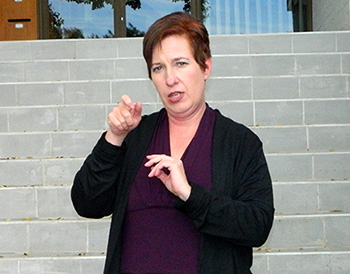Latest News Archive
Please select Category, Year, and then Month to display items
23 April 2020
|
Story Cornelius Hagenmeier
|
Photo Pixabay

The iKudu project, which is an European Union-funded Capacity Building in Higher Education (CBHE) project, has recently launched its blog, which aims to amplify the diverse voices of all iKudu stakeholders. In this space, members of the iKudu team will regularly share their views on the project and related international education topics.
The iKudu project focuses on developing a contextualised South African concept of Internationalisation of the Curriculum (IoC), which integrates Cooperative Online International Learning (COIL) virtual exchanges. The project was launched by the UFS in 2019, together with nine European and South African partner universities. It is funded by the European Union’s Erasmus+ programme with EUR999 881 (approximately R20 million) and is implemented over a three-year period.
The iKudu project is based on the fundamental belief that it is necessary to rethink internationalisation in an uncertain world. First, it is crucial to recognise and transform the power dynamics underlying international academic collaboration. Second, it is essential to develop pedagogies that allow every student to participate in international education, integrating technology where appropriate.
However, while all stakeholders agree on the fundamental tenets of the project and its principal goals, all iKudu stakeholders contribute different perspectives. In the blog, the iKudu stakeholders will provide a space for intellectual discourse on the project and related international education topics, which will allow constructive and critical engagement.
The link to the blog can be found at: https://www.ufs.ac.za/ikudu/ikudu-blogs/Transforming-Curricula-through-Internationalisation-and-Virtual-Exchanges
Martie Miranda one of only 10 SATI accredited sign language interpreters in South Africa
2015-04-23

Martie Miranda
Photo: Stefan Lotter |
The University of the Free State is privileged to have one of the top South African Sign Language (SASL) Interpreters as a staff member at the Unit for Students with Disabilities (USD).
Martie Miranda recently passed the accreditation exam of the South African Translators Institute (SATI), joining Dr Philemon Akach, previous HOD of the South African Sign Language Department of the UFS, in becoming one of only 10 SASL interpreters to be SATI accredited.
SATI is a professional association for language practice professionals in South Africa. Voluntary accreditation is offered at a professional level, ensuring a high standard of language practice. The system has become widely recognised, and is used as a recommendation or prerequisite for job applications by a number of institutions, including the South African government, particularly after the infamous ‘Jantjies incident’ with the funeral service of the late President Nelson Mandela.
Martie, a proud Child of Deaf Adults (CODA), has 18 years’ experience in SASL interpreting, lip speaking interpreting, and community interpreting as well as 15 years’ experience of conference and seminar interpreting. She boasts a Level 2 Advanced Interpreting qualification, and she has been mentoring Level 1 SASL interpreters for the past six years. Her extensive interpreting experience on a national and international level also includes Deafblind interpreting as well as Court and Legislature interpreting. She has interpreted three theatre productions, and has been coordinating the SASL services at the UFS since January 2009. She is responsible for the student management of all the hearing-impaired students at the USD.
Martie completed her BML degree (cum laude) at the UFS Business School in 2013, and received the award for top achiever in the programme during her final year. She will enrol for her MBA at the UFS Business School in July 2015.